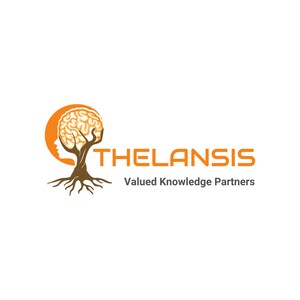HARTFORD, Conn., Feb. 8, 2024 /PRNewswire/ -- Thelansis Knowledge Partners, specialized in pharmaceutical and biopharmaceutical business research and consulting Company that provides data driven research and consulting support, released highly valued Market Outlook Report Title: Major Depressive Disorder - Market Outlook, Epidemiology, Competitive Landscape, and Market Forecast Report 2023 To 2033.
The prevalence of depression in the eight major markets is rising owing to multiple reasons (e.g., post-COVID pandemic impact, social reasons), which is evident from the increasing use of antidepressants. Major depressive disorder (MDD) is the most common form of depression and has been the patient segment of focus for the regulatory approvals of antidepressants and some antipsychotics.
Not only psychiatrists, but primary care practitioners are also involved in the routine management of MDD patients in most of the major markets. Thelansis's primary market research highlights some differences in the treatment practices between these physician specialties for MDD patients, with psychiatrists managing more severe MDD patients and MDD patients with other comorbidities (e.g., post-traumatic stress disorder PTSD). In the MDD report content, Thelansis covers various classes of drugs used for the management of MDD patients. Although multiple antidepressants are available to manage MDD, leading key opinion leaders (KOLs) are concerned about the large number of nonresponders to these drugs. According to published literature, about one-third of treated MDD patients do not respond to traditional antidepressants, this finding is confirmed by our KOLs. One of the main reasons for treatment resistance in MDD patients (i.e., Treatment-resistant depression TRD) is the inability of current treatments to resolve some symptoms effectively, which are termed as the residual symptoms in MDD patients. Common residual symptoms include anhedonia, sleep disturbances, fatigue, anxiety and sexual dysfunction, among others. Thelansis research elucidates the prevalence of these symptom domains in MDD patients receiving treatment in the major markets. Successfully targeting one or more of these residual symptoms could be a differentiating factor for a novel emerging drug in MDD, and would enable faster sales and patient share uptake in the MDD market. Some late-phase emerging agents targeting residual symptoms include,
Emerging agent |
Developer |
Residual symptom in MDD |
Phase of development |
Seltorexant |
J&J |
Insomnia |
III |
Aticaprant |
J&J |
Anhedonia |
III |
Navacaprant |
Neumora Therapeutics |
Anhedonia |
III |
*Please contact our sales team to get detailed TA analysis |
|||
"Residual symptoms are difficult to resolve and remain an area of concern in MDD patients. Current treatments are partially effective. We use polypharmacy in these MDD patients although guidelines recommend against it. An effective monotherapy, for example, for resolving MDD as well as insomnia, will help patients in getting rid of taking multiple drugs simultaneously." - A leading U.S.-based KOL
"I am looking forward to novel therapies in MDD patients, particularly for partial responders or TRD patients. Better response rates, remission rates, and functional improvements for these patients would propel emerging therapies towards commercial success." - A leading Europe-based KOL
Closing statement:
Thelansis's MDD report provides in-depth insights into the epidemiology and the drug development pipeline for the residual symptoms of MDD. In addition, the report answers key questions such as,
- How large is the epidemiology pool for MDD in the 8 major markets (including the U.S., EU5, Japan, and China) ?. How this prevalence will change in the next ten years (2023-2033)?
- What is the treatment algorithm for MDD in the major markets? What drugs are preferred in early lines and late lines by KOLs? What are the KOL opinions/quotes on key treatments in MDD?
- What are the various patient segments in MDD for drug targeting, including residual symptoms and nonresponders?
- What is the competitive landscape in MDD, along with the commercial potential for key late-phase agents? What are the key unmet needs in MDD on which drug development can be focused?
- What is the market size (in terms of sales) for MDD? What is the share of various drugs and classes? How will this landscape evolve in the next ten years?
About Thelansis
Thelansis specializes in pharmaceutical and biopharmaceutical business research and consulting Company, published reports across the therapeutic area which includes both rare / ultra-rare and mainstream indications. Over the period, we have built a strong repository of 6,000+ Bio-pharma reports which essentially cover Epidemiology studies and Market forecasting, opportunity assessment based on the KOL Interviews and conference coverage. Competitive intelligence and conference coverage throughout the phases of asset development executed by a team of a mix of Scientific and Business backgrounds. As an organization, the major focus is to provide real-world data evidence and market insight to pharmaceutical companies for their decision-making.
Offerings in the CNS / psychiatry: syndicated reports/offerings for the major markets, epidemiology, customized market research including KOL interviews, PMR surveys, pipeline research, conference coverage, market forecast models, and consulting.
The developers of CNS agents can engage with Thelansis for customized market research and can gain on possible solutions for ensuring considerable market penetration for their respective therapies.
Website: Thelansis.com
For more information, please contact:
Chinmaya Kumar Senapati
Email- clientsupport@thelansis.com
Contact No: +91- 6397-349664
Logo: https://mma.prnewswire.com/media/2336260/THELANSIS_LOGO.jpg






Share this article